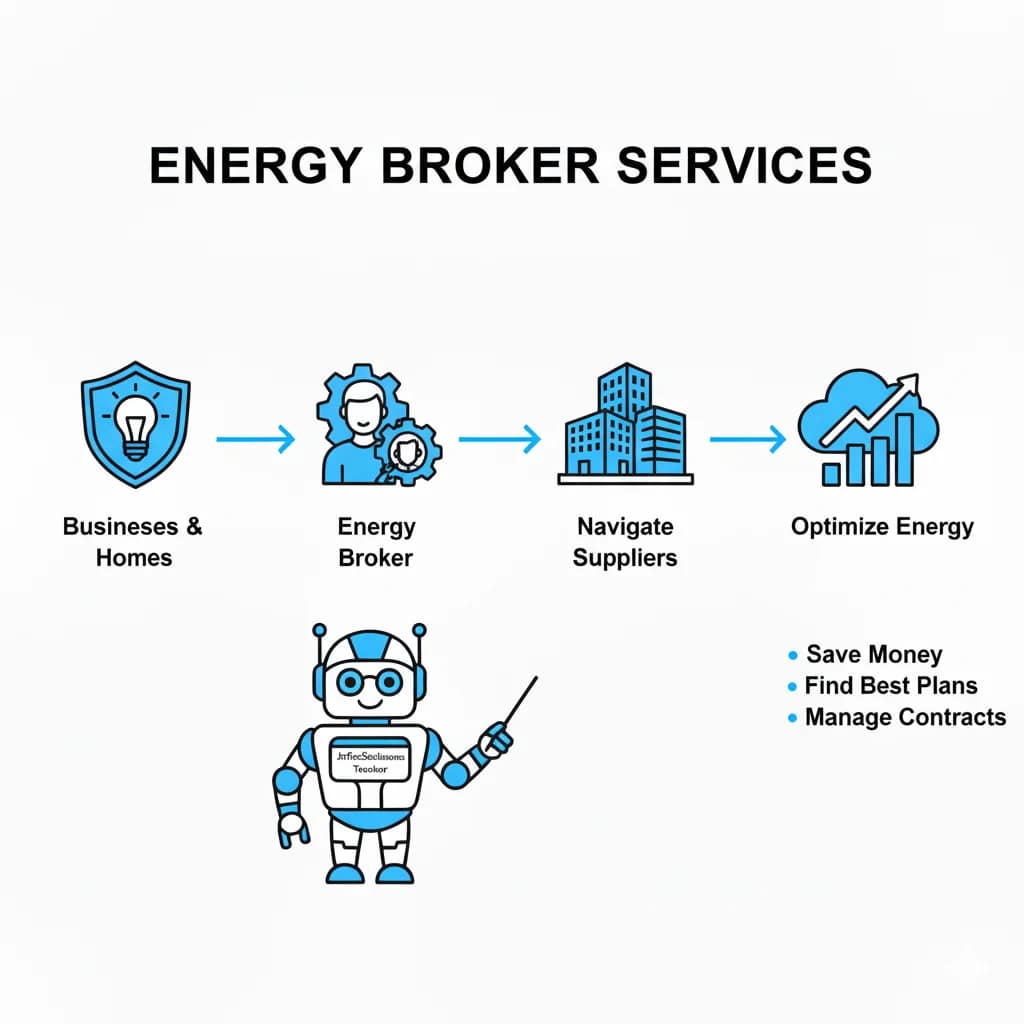SUMMON THE idea of energy broker services in the hospitality sector, and chances are you see a sharp-suited consultant poring over utility bills, negotiating deals to slash costs for sprawling hotel complexes. Never mind that—as seasoned hotel managers will hasten to remind you—you have taken mere bill reduction as a synecdoche for the entire spectrum of energy optimization. The real problem with this image is that modern hotels are evolving beyond basic utilities, demanding energy broker services that integrate with advanced technologies like high-speed Wi-Fi networks, PBX systems, and public safety DAS to enhance guest experiences while maintaining efficiency.
Relevant US City-Specific Building Codes for Public Safety DAS and Fiber Internet Contracts
In major US cities, building codes ensure that hotel technologies, including public safety Distributed Antenna Systems (DAS) and fiber optic internet installations, meet safety and performance standards. In New York City, the Uniform Fire Prevention and Building Code requires adequate emergency communication systems like DAS for first responders in large buildings, including hotels 1. Hotels must have fire-retarded bulkheads and sprinkler systems, impacting fiber cabling installations to maintain structural integrity 2. The Multiple Dwelling Law further mandates safety features for multifamily structures, applicable to hotels .
In Los Angeles, the County Building and Safety enforces codes based on the California Building Code, focusing on energy efficiency and safety for electrical and fiber optic installations. Hotels must comply with requirements for exhaust vents and structural maintenance to support high-speed internet without hazards 
Las Vegas, a hospitality hub, adopts amendments to the International Building Code, requiring robust DAS for public safety in high-occupancy buildings. Codes emphasize safe fiber infrastructure installation for guest connectivity, with provisions for fire protection and structural soundness . Property owners need permits to ensure compliance. JetTechSolutions.com specializes in navigating these codes for seamless installations.
What Are Energy Broker Services for Hotels?
Energy broker services for hotels involve experts negotiating energy contracts to optimize costs and efficiency. In hotel technology, they ensure reliable power for CCTV, Wi-Fi, and TV programming. Brokers analyze usage, procure rates, and implement reduction strategies without affecting guests 8. For example, they recommend smart systems integrating with PBX and panic buttons. With 25+ years at JetTechSolutions.com, we help hotels cut energy costs while enhancing connectivity.
These services extend to sustainability, helping hotels meet green standards. Brokers provide risk management, protecting against market volatility. In hospitality, this means stable budgets for tech upgrades like low voltage cabling.
How Can Hotels Benefit from Energy Brokers?
Hotels benefit through cost savings, risk mitigation, and efficiency. Brokers handle procurement, freeing managers for guest focus. They offer demand response programs lowering peak charges 9. This translates to lower bills for DAS and fiber systems. JetTechSolutions.com integrates these with our installations, ensuring high standards of safety and satisfaction.
Benefits include customized strategies, such as energy audits identifying waste in lighting or HVAC. Hotels can achieve 20-30% savings, reinvesting in guest experiences. Case studies show brokers enabling long-term contracts for stability.
What Is Energy Management in Hospitality?
Energy management in hospitality involves monitoring and conserving energy to minimize costs and impact. It uses IoT for real-time tracking in lighting and HVAC 10. For hotels, it ensures power for amenities like Wi-Fi and security. JetTechSolutions.com implements these, achieving efficiency with top-tier infrastructure.
Key components include automation and analytics. Hotels can use sensors to adjust energy based on occupancy, reducing waste. This professional approach enhances operational resilience.
How to Reduce Energy Costs in Hotels Using Brokers?
To reduce costs, engage brokers for audits, better rates, and efficiency measures like LED upgrades or HVAC optimization 11 12.
| Strategy | Savings | Implementation |
|---|---|---|
| LED Upgrade | 20-30% | Replace bulbs |
| Smart Thermostats | 10-15% | Install in rooms |
| Energy Audits | 15-25% | Annual reviews |
| Demand Response | 5-10% | Peak shifting |
JetTechSolutions.com offers audits and installations for maximum savings. Expand with renewables like solar for tech power, appealing to eco-guests. Train staff on practices, integrate with DAS for comprehensive management. Examples from large chains show 40% reductions through brokers. In conclusion, energy broker services are essential for modern hotels, combining cost control with tech integration for superior guest experiences.

